National security policy: Govt out to throttle terror financing
Will request Muslim states to clamp down on financial backers of sectarian, terrorist networks operating in Pakistan.
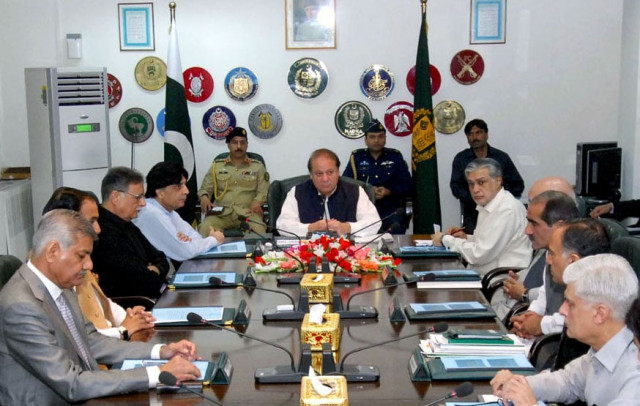
Prime Minister chairing a briefing session at the Ministry of Interior. PHOTO: PID
On Friday, Prime Minister Nawaz Sharif and Interior Minister Chaudhry Nisar Ali Khan met to discuss the 33-page draft of the National Security Policy 2013 prepared by the National Counter Terrorism Authority (Nacta). He was accompanied by his security advisers and three members of his cabinet.
According to a federal minister who attended the meeting, a strategy to counter influence from certain states on sectarian violence in Pakistan was discussed as part of the hectic efforts to finalise the new policy.
“Such influence has been a contributory factor towards the growth of sectarian networks in Pakistan… the roots of extremism in the country have often been traced to groups within our neighbours on the western border as well as countries with large Pakistani diasporas such as the Gulf states,” the minister, who wished not to be named, said citing page 17 of the draft. He added that the government has decided to dismantle the links of terrorists in Pakistan from groups operating from outside the country.
Interior ministry officials privy to the meeting said Prime Minister Nawaz also advised the interior minister to launch a crackdown against hate literature being distributed across the country. “Literature espousing extremist ideas must be eradicated from educational institutions, particularly seminaries,” an official cited the premier as saying.
The new policy, according to the officials, observes that clerics have failed to provide the people lessons on peace and as such calls for reforming the education structure. It notes that the current education structure facilitates an extremist mindset and provides terrorist organisations with potential recruits. They said the interior ministry, on Premier Nawaz’s directions, will ask provinces to send recommendations on parallel systems of education in this regard.
The prime minister also directed the ministry to swiftly finalise the anti-terrorism and anti-extremism policies in consultation with all provinces. He asked for the preparation of a well thought-out, workable plan to achieve the desired targets and stressed that restoring peace and eliminating terrorism should be the top priority.
“We have to perform, failure is not an option at all,” an official quoted Premier Nawaz as saying. According to the ministry sources, the prime minister reiterated the need to improve coordination between security agencies. He also called for stopping the influx of illegal aliens into the tribal areas and other parts of the country.
The interior minister is set to hold conclusive meetings with the heads of paramilitary forces regarding the new policy next week.
Nisar, Balochistan CM meet
Balochistan Chief Minister Dr Abdul Malik Baloch met Interior Minister Chaudhry Nisar Ali Khan on Friday and discussed matters relating to the preparation of national security policy. The interior minister assured him of the federal government’s complete support in combating terrorism.
“Difficult conditions in Balochistan require all political forces in the province to work together to pull the province out of its current situation,” said Nisar. Malik welcomed the decision to build an economic corridor from Gwadar to Kashgar and expressed confidence that it would usher in a new era of development in the province.
Published in The Express Tribune, July 13th, 2013.

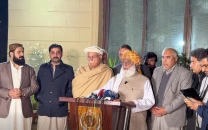
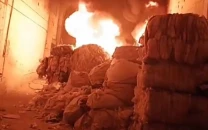
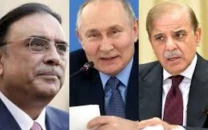


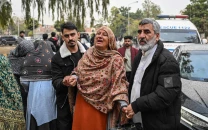











COMMENTS
Comments are moderated and generally will be posted if they are on-topic and not abusive.
For more information, please see our Comments FAQ